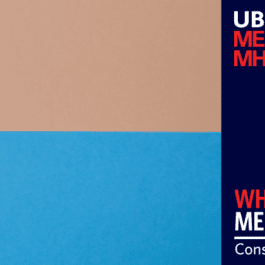
MEL & MHLP – Learning Structure

1. Master of Engineering Leadership
2. Master of Health Leadership and Policy
Master of Engineering Leadership: How will I be learning?
Students enrolled in the Master of Engineering Leadership professional degree programs are driven to accelerate their careers through an educational method that focuses on independent research and collaborative group work. They are given the resources to improve their technical abilities and are encouraged to create and implement actionable solutions to real-life problems they are passionate about.
Students are expected to study throughout the program in a manner that reflects how their career may operate upon graduation. As such, they are required to review course content independently before attending class. For instance, a student will annotate assigned readings and engage with lecture videos posted by their professor. Students are then better prepared to engage with one another during class time to discuss and apply the theories and techniques they had already reviewed. The majority of class time may then be devoted to case studies, group work, experiments and demonstrations.
Our programs also include a capstone design project. The capstone project synthesizes classroom learning with industry challenges, and is overseen by an industry professional out on the field. Students of these programs obtain experience within their field and strengthen their ability to lead complex multidisciplinary projects. This project coherently unites the knowledge that students gain in their technical field with the business skills they develop with the Sauder School of Business. For example, High Performance Buildings students have the opportunity to analyze an existing building and propose “green” design changes to a client, building owner or operator.
In all programs, the assessment of learning focuses on independent study and real-life application of knowledge. Students are graded on case studies, presentations, assignments and larger projects.
The programs offered through the Master of Engineering Leadership are designed to highlight the importance of collaboration as well as leadership. Students work both collectively and independently in an effort to reflect the interconnected reality of the business world.
Explore the possibilities for higher education with UBC’s Master of Engineering Leadership programs. With the support of industry professionals and experienced faculty, you can propel your career forward and occupy leadership roles within your field.
Master of Health Leadership & Policy: How will I be learning?
Students enrolled in the Master of Health Leadership & Policy professional degree programs are driven to accelerate their careers through an educational method that focuses on independent analysis and collaborative group work. They are given the resources to improve their clinical skills and are encouraged to create and implement actionable solutions to real-life problems they are passionate about within the health care industry.
Students are expected to study throughout the program in a manner that reflects how their career may operate upon graduation. As such, they are required to review course content independently before attending class. For instance, a student will annotate assigned readings and engage with lecture videos posted by their professor. Students are then better prepared to engage with one another during class time to discuss and apply the theories and clinical practices they had already reviewed. The majority of class time may then be devoted to case studies, group work and demonstrations.
The Seniors Care program is unique in that some of their courses are organized in an interdisciplinary format that achieves the benefits of both distance education and on-campus course models.
The Clinical Education program includes a graduate practicum during the final semester of the program. During this practicum, students work alongside clinical mentors to implement what they have learned throughout the program within a range of clinical learning contexts. Students are able to achieve their clinical education goals by synthesizing clinical expertise with business knowledge under the supervision of an industry expert.
In both programs, the assessment of learning focuses on independent study and real-life application of knowledge. Students are graded on case studies, presentations, assignments, larger projects and exams.
The programs offered through the Master of Health Leadership & Policy are designed to highlight the importance of collaboration as well as leadership.
Explore the possibilities for higher education with UBC’s Master of Health Leadership & Policy programs. With the support of industry professionals and experienced faculty, you can propel your career forward and occupy leadership roles within your field.
Application Deadlines
The online application portal for the January 2025 has closed.
Get ready to apply!
Admissions for the 2026 intake will open on January 1, 2025.
How to ApplyJoin us for an
Info Session
Sign up for our latest online information sessions and discover what our programs have to offer.
Sign Up NowAssess your Eligibility
Determine if your professional experience and academic background make you a fit for your desired program.
Start AssessmentApplicant Guide
Navigate the application process with ease!
Sign up to receive tailored instructions and a detailed guide directly to your email.
Sign up

